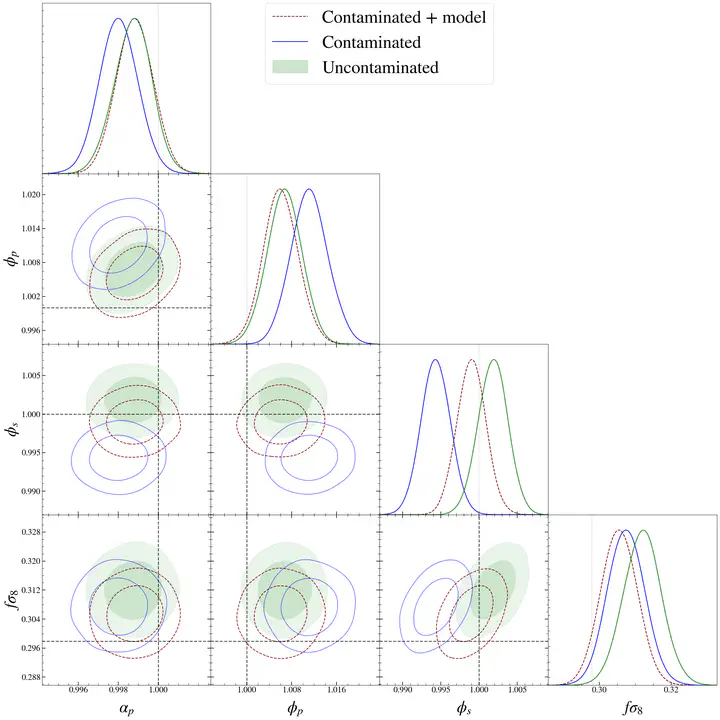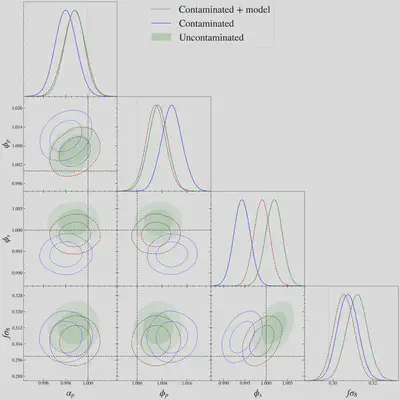Modelling the impact of quasar redshift errors on the full-shape analysis of correlations in the Lyman-α forest

Abstract
In preparation for the first cosmological measurements from the full-shape of the Lyman- (Ly ) forest from DESI, we must carefully model all relevant systematics that might bias our analysis. It was shown in Youles et al. (2022) that random quasar redshift errors produce a smoothing effect on the mean quasar continuum in the Ly forest region. This in turn gives rise to spurious features in the Ly auto-correlation, and its cross-correlation with quasars. Using synthetic data sets based on the DESI survey, we confirm that the impact on BAO measurements is small, but that a bias is introduced to parameters which depend on the full-shape of our correlations. We combine a model of this contamination in the cross-correlation (Youles et al. 2022) with a new model we introduce here for the auto-correlation. These are parametrised by 3 parameters, which when included in a joint fit to both correlation functions, successfully eliminate any impact of redshift errors on our full-shape constraints. We also present a strategy for removing this contamination from real data, by removing 0.3% of correlating pairs.
